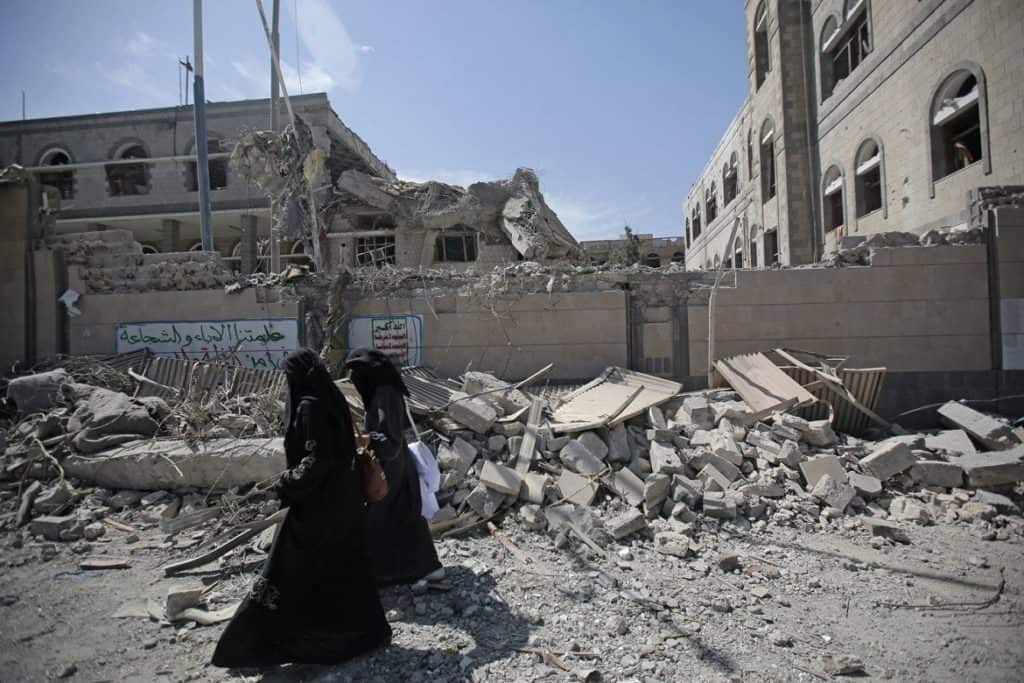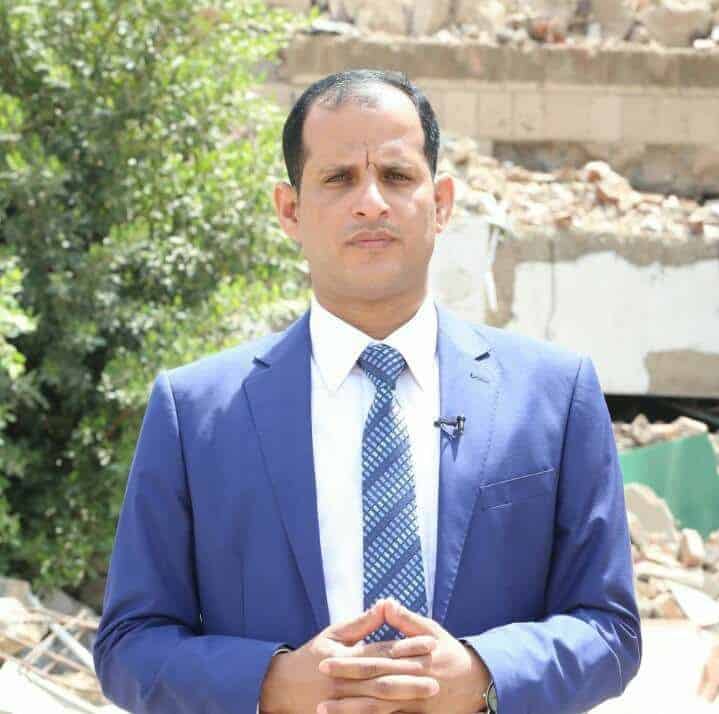The development of the humanitarian crisis in Yemen requires close attention because it places the entire world community in an extremely vulnerable position, when none of the parties to the conflict is able to win. Meanwhile, the participation of foreign states in the confrontation between Hussites and Hadists creates a condition for global confrontation. A number of international actors, including Russia, are trying to reconcile the warring parties, but the situation in Yemen is still very complicated, and therefore the war is unlikely to end in the short term.
World Geostrategic Insights talked about that with Nabil Alyousefi (Yemen, Sana), leading political expert of the official government of Sana’a, as well as the news reporter of the news agency “Al Araby TV Network”.
1 ) At a meeting with Konstantin Kosachev, head of the Federation Council Committee on Foreign Affairs in April 2019, Abdel Rahman Al-Skaqaf, secretary general of the Socialist Party of Yemen, said that Sanaia was counting on Russia’s help in resolving the military conflict in Yemen. How relevant is this statement about the advisability of Russian assistance? Is it possible that Moscow will act with an intermediary mission, through which in the foreseeable future the end of the war in Yemen is possible? It is worth noting that in October 2018, representatives of the Hussite movement Ansar Allah and, in particular, Abdel-Malik al-Ojarit and Mohammed Abdel Salam, appealed to Russia with a similar request to assist in resolving the Yemeni crisis. The goal of the Hussites, in this case, is obvious – Moscow maintains a fairly good relationship with Iran, which, in turn, is on the side of the Houthites, and its “bolt-oriental successes”, especially in Syria, create a very positive international image for Russia as a fighter for rights oppressed. However, Moscow, it would seem, very reluctantly met this request. With what it can be connected?
– Russia was able to establish relations with its Iranian ally, supporting the Hussites, and thanks to the proximity between the two countries. In turn, the Ayatollah regime may put pressure on the Houthis to make decisions developed by Russia, which has relations with the government of Hadi, the Arab Alliance and the United States. Meanwhile, Moscow does not actually give preference to any of the parties to the Yemeni conflict, since it comes primarily from the idea of preserving peace in the Middle East and in Yemen, in particular. Of course, the Kremlin is negotiating with both the Hussites and the Hadists, receiving from them the most up-to-date information about the events taking place in Yemen. However, as already mentioned, the goal of Moscow is not to be on the side of any party to the conflict, but to establish a dialogue between them in order to secure peace. This is Russia’s mediation mission.
2) Systematically attempted by both parties to the conflict to develop a single mechanism for overcoming the crisis that has arisen due to the fact that all parties are equally not sure that they have enough strength to continue military operations. Riyadh periodically takes initiatives to reach a compromise (from the point of view of the Saudis) decision that is categorically rejected by the Hussites. Meanwhile, the Hussites offer their versions of peace plans that are not acceptable to Saudi Arabia. At the same time, the UN’s role in resolving the conflict has been practically reduced to “zero”, and separatist sentiments are actively spreading throughout South Yemen. In addition, the “Islamic State” does not abandon its attempts to extend its influence to Sana’a. Under these conditions, the humanitarian crisis in Yemen can last for a very long time, or to be more precise, for several decades. What efforts are currently the official Sana’a authorities are making efforts to overcome the humanitarian crisis? Are these efforts successful, or are there obstacles created by the members of the international community in their implementation?
– The current government of Sana is looking for political and peaceful solutions that guarantee their survival in power and play a leading role in neutralizing the consequences of armed conflict, including in the humanitarian sphere. Therefore, Yemen is open to the actions of international humanitarian organizations, whose actions help to overcome the existing humanitarian crisis and allow for the establishment of a dialogue between various social groups. In addition, the port of Hodeida is open to international partners interested in peace in Yemen. And the official government is doing everything possible to improve the ordinary life of the state. Of course, there are a number of problems on the road to normalization of relations associated with certain negative manifestations on the part of the “Islamic State” and local separatists. But these problems can be solved if certain international participants cease to escalate the situation, trying to destabilize life in Yemen. International law is a major obstacle to the peace process in Yemen, thanks to its provisions requiring the transfer of weapons to the Hусit and the abolition of the government of Hadi.
3) The main problem that Russia is currently facing in an attempt to influence the conflict in Yemen is the existing irreconcilable contradictions between Saudi Arabia and Iran, which creates certain difficulties in the organization of the negotiation process between Hussites and Hadists by analogy with the Sochi or Astana format. Without resolving the Iranian-Saudi differences, it is unlikely that the parties will intend to discuss together the situation in Yemen. What, in your opinion, should Moscow undertake in order to try to neutralize the conflict between Riyadh and Tehran in order to normalize the situation in Sana’a? What actions is taken by the official leadership of Yemen in order to assist Moscow in the search for a compromise that would suit both Saudi Arabia and Iran?
– Moscow should play a mediating role in bringing together the views of Iran and Saudi Arabia with points of consensus and disagreement, as well as providing Saudi Arabia with assurances that the Hutists will not be attacked by Saudi Arabia in the future, in addition to exceptional threats against Saudi objects . At the moment, there are no steps encouraging Russia to take decisive action, except for the visit of the Huty delegation to Moscow and requests that the Kremlin play a key role in resolving the Yemeni crisis.
4) Recently, US President Donald Trump vetoed a bill passed by the US Congress to stop American military assistance to Saudi Arabia in the war in Yemen. This action has caused concern in the international arena due to the fact that through Riyadh Donald Trump is seeking to put pressure on Iran, pushing it towards war. In conjunction with the war in Yemen, the war in Iran may mean that the world will be on the verge of a global military conflict in which virtually all countries of the world can take part. In this regard, is it fair to say that Washington intends to use the war in Yemen as a pretext to start a global conflict?
– Through the escalation of the conflict between Hussites and Hadista, as well as provoking Saudi Arabia and Iran to the escalation of tensions between them, the White House administration seems to be counting on a certain blackmail of the countries of the Middle East and the Persian Gulf in order to try their weapons under the pretext of threatening international security . Washington will not stop until the conflict in Yemen, in addition to the existing international irritants in US-Iranian relations, does not occur a direct military conflict between Tehran and other countries. Therefore, there is a risk of global conflict.
Image Credit: Flickr/Felton








